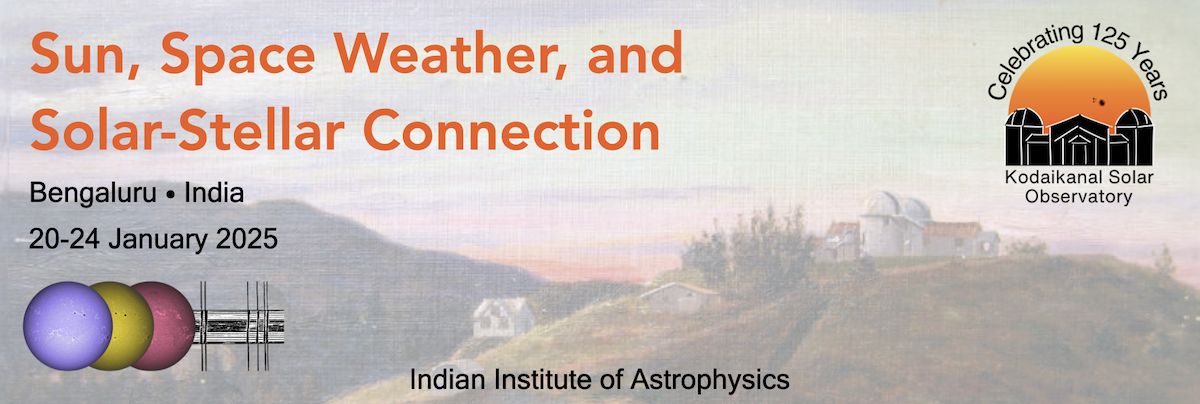Speaker
Description
The solar convection zone is characterized by the birth of the concentrated magnetic field regions known as Bipolar Magnetic Regions (BMRs), which are tilted with respect to the equatorial line. The thin flux tube model, employing the rising of magnetically buoyant flux loops twisted by the Coriolis force, is a popular paradigm to explain the formation of the tilted BMRs. In this study, we assess the validity of the thin flux tube model by analyzing the tracked (Hale and Anti-Hale) BMR data obtained through the Automatic Tracking Algorithm for BMRs (AutoTAB). Our observations reveal that the tracked BMRs exhibit the expected collective behaviors and the polarity separations of BMRs increase over their normalized lifetimes, supporting the assumption of the rising flux tubes from the CZ. Furthermore, we observe an increasing trend of the tilt with the flux of the BMR, suggesting that rising flux tubes associated with lower flux regions are primarily influenced by drag force and Coriolis force, while in higher flux regions, magnetic buoyancy dominates. Additionally, we observe Joy's law dependence for emerging BMRs from their first detection, indicating that at least a portion of the tilt observed in BMRs can be attributed to the Coriolis force. Finally, we observe that the lower flux regions exhibit a higher amount of fluctuations associated with their tracked tilt measurements, suggesting that they are more susceptible to turbulent convection. All these results hint towards the thin flux tube model.
| Contribution Type | |
|---|---|
| Theme | Solar Magnetism over Long-Time Scales |

